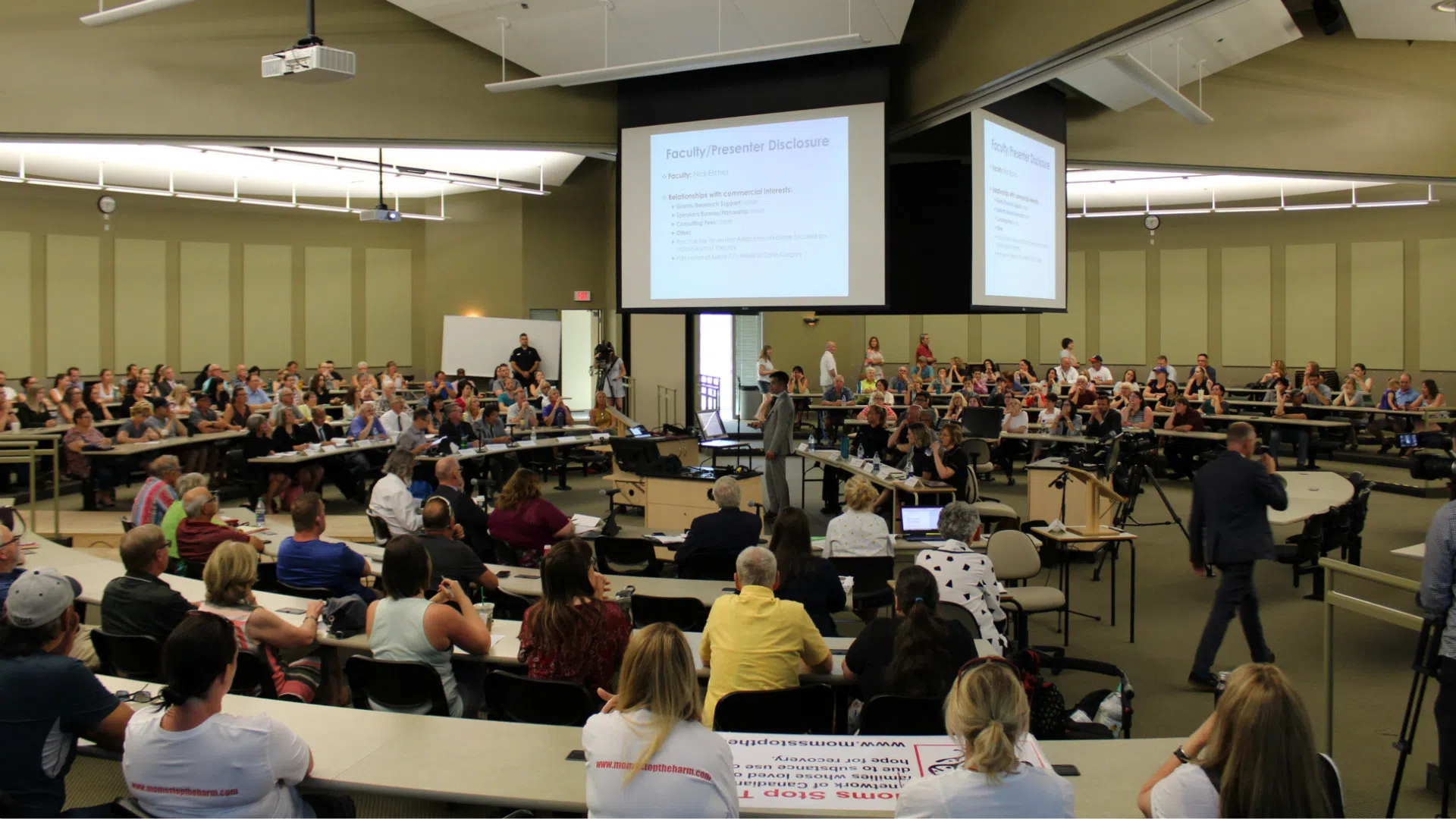
Panel of experts discuss opioid crisis, harm reduction in Lethbridge
LETHBRIDGE – The opioid crisis isn’t ending anytime soon.
Of all the messages delivered during a community meeting centred around the issue Monday night, July 9, that point was the clearest.
Approximately 200 members of the public and Lethbridge City Council had an opportunity to hear from a panel of experts and specialists at Lethbridge College, before getting a chance to have some of their questions answered.
While the panel – consisting of health, addiction and harm reduction specialists, as well as representation from the Lethbridge Police Service and Lethbridge Fire/EMS – agreed that the problem is no where close to being over, they all supported the work going on at the supervised consumption site (SCS) in our city and the needle exchange program.


